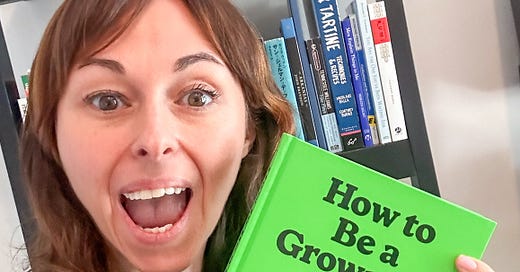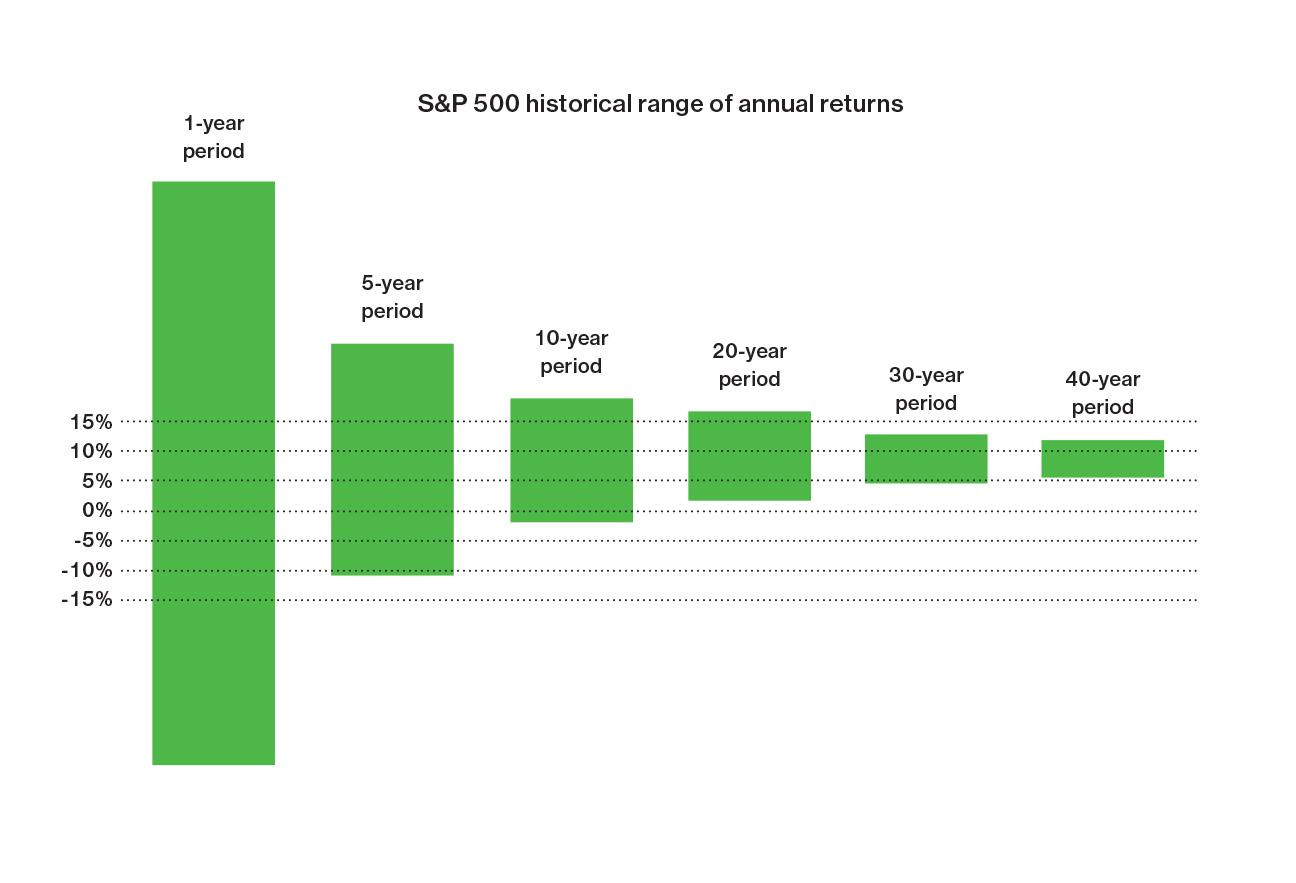Hi friends!
I need your help!
Over here at T$ Industries, I like to check in with what YOU need from me as I craft my offerings (small group coaching circle, workshops, retreats, books, etc). It would be SUCH A HELP if you wouldn’t mind filling out this short survey to help me create exactly what you need! People who fill out the survey always get first dibs on anything I do: coaching, retreats, books, all of it! THANK YOU for taking the time!
On with le newsletter…
Does Anyone *Actually* Feel Like a Grown-Up?
Some days, I feel like a boss-CEO-adult-person who has her sh*t together - emails are answered, laundry is folded, and I even meal-prepped for the week. Other days, I’m wearing pajamas at 3 p.m., scrolling through my phone while wondering if I’m the only one who doesn’t have a "5-year plan." If you’ve ever felt like you’re straddling the line between being a responsible adult and someone who’s just trying to survive the day, you’re not alone.
I’m thrilled to share this conversation with Raffi Grinberg, business leader, author, and educator. He is the Executive Director of Dialog and cofounder of The Constructive Dialogue Institute, both multimillion-dollar education organizations that bring people together for conversations. I LOVED (and even blurbed!) Raffi’s new book How to Be a Grown Up. Yes, it would be great gift for college grads but also…I found it super useful for me. Raffi does a fabulous job of explaining everything from taxes (I feel like I understand things WAY better), to how to have better conversations, to how to face rejection. Truly, it’s a primer to being alive in 2025. In this interview, Raffi dives deep into the stages of adult development, shedding light on how we often get stuck in a “socialized mind” and struggle to break free from societal expectations.
Let’s dive in!
Tara: Raffi, does anyone ever actually feel like a grown-up? Or is this whole “adulthood” thing just an illusion?
Raffi: Researchers have actually discovered a definition of adulthood. Just as children progress through developmental stages, so do adults:
The Impulsive Mind – acting on impulses, often tied to childhood.
The Imperial Mind – prioritizing desires in the moment, with little regard for the future or others (typical of adolescence).
The Socialized Mind – mostly caring about what you think others expect from you.
The Self-Authored Mind – mostly caring about what you want to do.
The Self-Transforming Mind – embracing multiple, sometimes contradictory perspectives.
Note: The vast majority of adults are stuck (for their entire lives!) in the socialized mind.
When I created and taught the first-ever Adulting 101 course, I wanted to equip soon-to-be graduates with all the knowledge I wished I had known at their age. On the first day, I’d ask students to imagine a Google Doc filled with their deepest desires:
Become a doctor.
Buy a house.
Get married, but not before 30.
Then, I’d have them check the revision history:
Become a doctor [Grandpa – he was poor and always wished he had gone to medical school]
Buy a house [Parents – they always said homeownership was the mark of adulthood]
Get married, but not before 30 [Friends – all single and enjoying their twenties]
Many beliefs are “hollow”: instilled by others, unquestioned and untested. In order to graduate to the self-authored mind, you must go through every belief, one at a time, and ask, “do I still believe this?”
Your whole life, you’ve had Read-Only access to the Google Doc of your deepest wants; now, for the first time, you’ve been granted Edit access.
Tara: For those who haven’t read your book yet, can you tell us what inspired you to write How to Be a Grown Up and what it’s about?
Raffi: After college, many graduates realize that 99% of what they learned in high school and college has no practical relevance to their lives. Even worse: there are many things they do need to know about adult life, and none of them were taught.
I was in those shoes. My friends and peers were struggling as well, with questions like:
How do I get health insurance? Invest for retirement?
How do I ace my first job?
How am I supposed to find my soulmate?
How do I achieve a sense of purpose and fulfillment in life?
I decided to do something about it: I created and taught the course Adulting 101 at Boston College. It became the most popular course in the department.
I surveyed the students for years after they graduated to learn which of the material was most useful to their lives and what else they wish I had covered - which I then distilled into a concise, comprehensive book.
Tara: The world keeps changing - rapidly. Is there anything about adulthood in 2025 that feels different from when you first started thinking about this book?
Raffi: No.
News headlines and Instagram posts will try to convince you that whatever is happening now is the most important thing that deserves all your attention, and that in order for knowledge to be useful it has to be “relevant” to the current moment.
Thousands of years of human history would disagree. The general principles of how to have a good life (mental health, personal finance, relationships, and career) are mostly constant.
My goal has always been to equip students—and now, readers—with fundamental knowledge, as well as the frameworks (and the confidence!) to engage in their own thinking and choose how to apply everything they learn to their own lives.
Tara: What’s one hot tip from your book that you wish more people knew?
Raffi: If you don’t save money for retirement, you likely won’t have enough to live on. (Isn’t it crazy they never tell you this in school?!)
Fortunately, you don’t need to save nearly as much as you think you do, because of the magic of investing.
It’s quite difficult to learn about investing on your own because there is so much confusing (and downright misleading) information out there. The stock market is like a money tree stapled to a casino; the key is to learn how to take full advantage of the money tree without falling prey to the casino. This chart I created, based on original research, tells the full story of the magic of the money tree:
In less than 35 pages, you’ll learn enough to understand this—and basically everything you need to know about investing in your twenties.
T$ Stamp of Approval:
How to Be a Grown Up is the perfect read for anyone who’s ever wondered if there’s a secret manual to adulting (spoiler alert: there isn’t!)
I Want To Hear From You!
Being an adult is…a lot. Like, why didn’t anyone tell us it meant googling “how to cook chicken” while also managing your mental health, friendships, and retirement account you forgot existed? If you’ve got a trick, a tip, or even a tiny win that makes grown-up-ing a little easier—or a little funnier—I want to hear about it.








Kelly Williams Brown coined the term "adulting" around 2009 and started a blog full of helpful tips on how to be a grownup for Millenials in their twenties and just entering the workforce, and all the other firsts you experience in your twenties. Her blog eventually became her first book (also titled Adulting!), and it has been so invaluable to my life. I've read it cover to cover and consulted it countless times, especially the job and relationship advice sections. She has a fabulous sense of humor, quotes rap lyrics (mfer, watch ya mouth), and includes goofy little doodles (like Compound Interest Cheetah! He adds up very fast, like a very fast cheetah. And 401koala, which you love on and feed well so he'll be fat and happy, like an adorable koala).
One of my favorite bits of advice from Adulting: make sure your feelings are relatively the same currency with the person you're dating. If your feelings about them are Euros and their feelings about you are a 2-for-1 mcflurry coupon, this is proooooobably not a healthy relationship and Not A Valid Long Term Plan.
This book came out at the exact right time in my life, exactly when i needed it. The advice is timeless and invaluable, at any age.
I like the Google Doc metaphor for describing how the basis of many of our hopes and dreams are echoes of the aspirations, warnings, and even regrets of our family and friends. There can be positive and negative aspects to each echo, and what's important is we take agency to reflect and edit the echoes to become the sound of our authentic hopes and dreams. The "read only" and "edit" phrase was a great way to explain that self- awareness and agency!
One tip I learned is to prioritize getting much sleep as possible. I used to run on 3-5 hours of sleep during the hustling college years, like the rocket boosters, Tara wrote about in a previous post! I used to work retail after school, and then come home and work on multiple projects for school up until I went to sleep. Now I'm 5 years into my career and my work hours are steady, and I'm stepping into more of a flow experience. I've revamped my evening routine to make time for brief meal-prepping in the kitchen, and time for relaxation (skin care mask, practicing music, reading, etc). Once I have my cup of chamomile tea, it's my reminder that this is relaxation time.